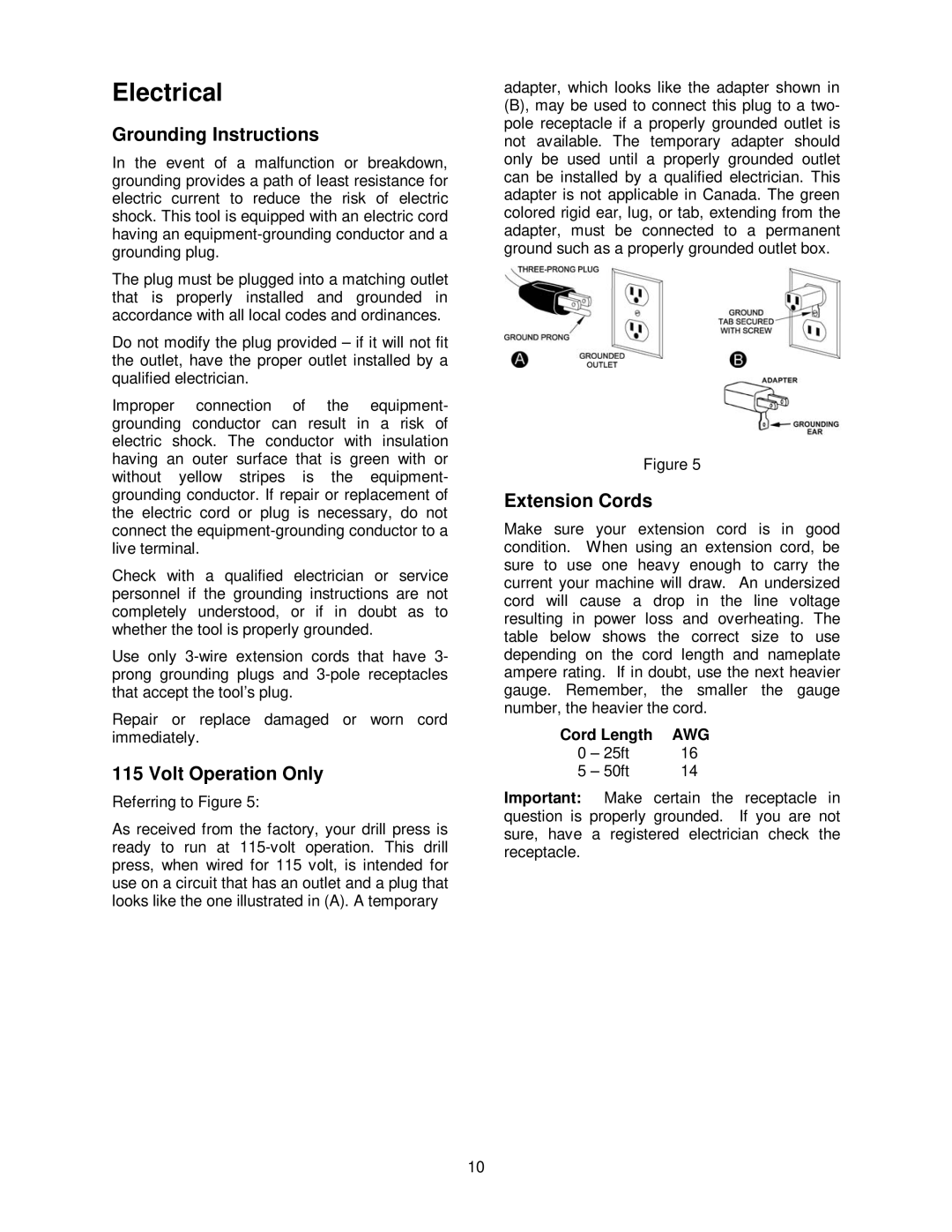
Electrical
Grounding Instructions
In the event of a malfunction or breakdown, grounding provides a path of least resistance for electric current to reduce the risk of electric shock. This tool is equipped with an electric cord having an
The plug must be plugged into a matching outlet that is properly installed and grounded in accordance with all local codes and ordinances.
Do not modify the plug provided – if it will not fit the outlet, have the proper outlet installed by a qualified electrician.
Improper connection of the equipment- grounding conductor can result in a risk of electric shock. The conductor with insulation having an outer surface that is green with or without yellow stripes is the equipment- grounding conductor. If repair or replacement of the electric cord or plug is necessary, do not connect the
Check with a qualified electrician or service personnel if the grounding instructions are not completely understood, or if in doubt as to whether the tool is properly grounded.
Use only
Repair or replace damaged or worn cord immediately.
115 Volt Operation Only
Referring to Figure 5:
As received from the factory, your drill press is ready to run at
adapter, which looks like the adapter shown in (B), may be used to connect this plug to a two- pole receptacle if a properly grounded outlet is not available. The temporary adapter should only be used until a properly grounded outlet can be installed by a qualified electrician. This adapter is not applicable in Canada. The green colored rigid ear, lug, or tab, extending from the adapter, must be connected to a permanent ground such as a properly grounded outlet box.
Figure 5
Extension Cords
Make sure your extension cord is in good condition. When using an extension cord, be sure to use one heavy enough to carry the current your machine will draw. An undersized cord will cause a drop in the line voltage resulting in power loss and overheating. The table below shows the correct size to use depending on the cord length and nameplate ampere rating. If in doubt, use the next heavier gauge. Remember, the smaller the gauge number, the heavier the cord.
Cord Length | AWG |
0 – 25ft | 16 |
5 – 50ft | 14 |
Important: Make certain the receptacle in question is properly grounded. If you are not sure, have a registered electrician check the receptacle.
10
